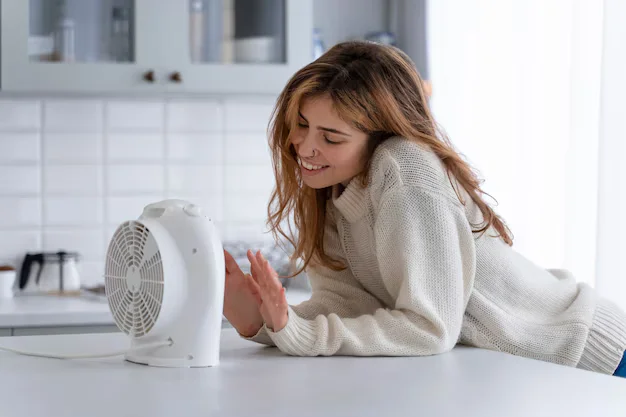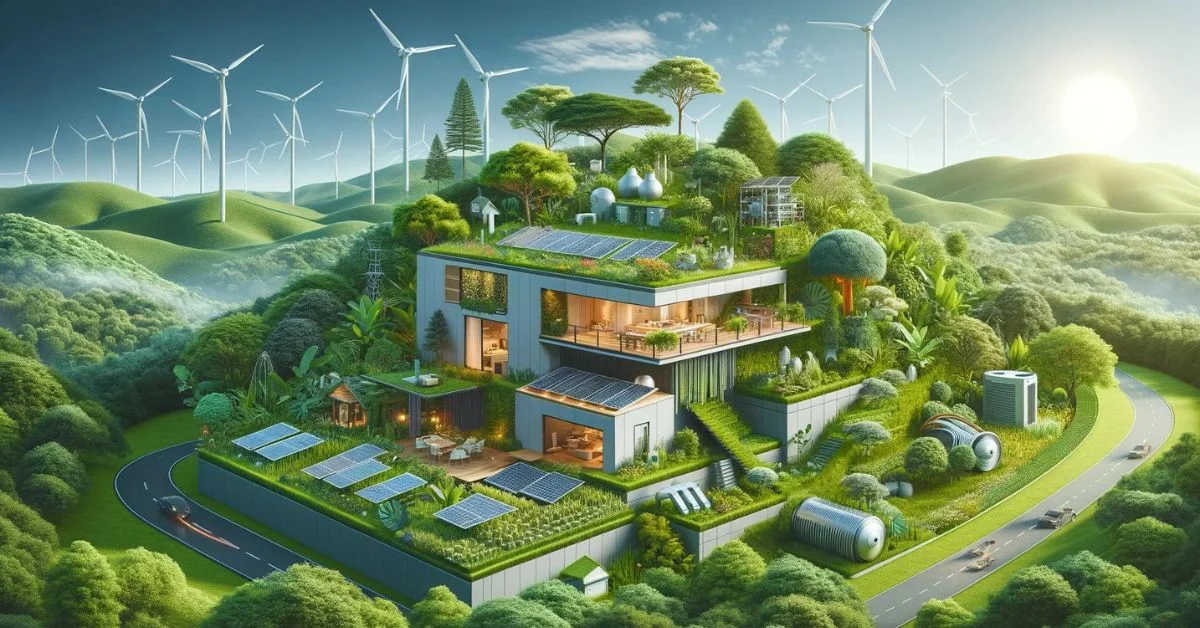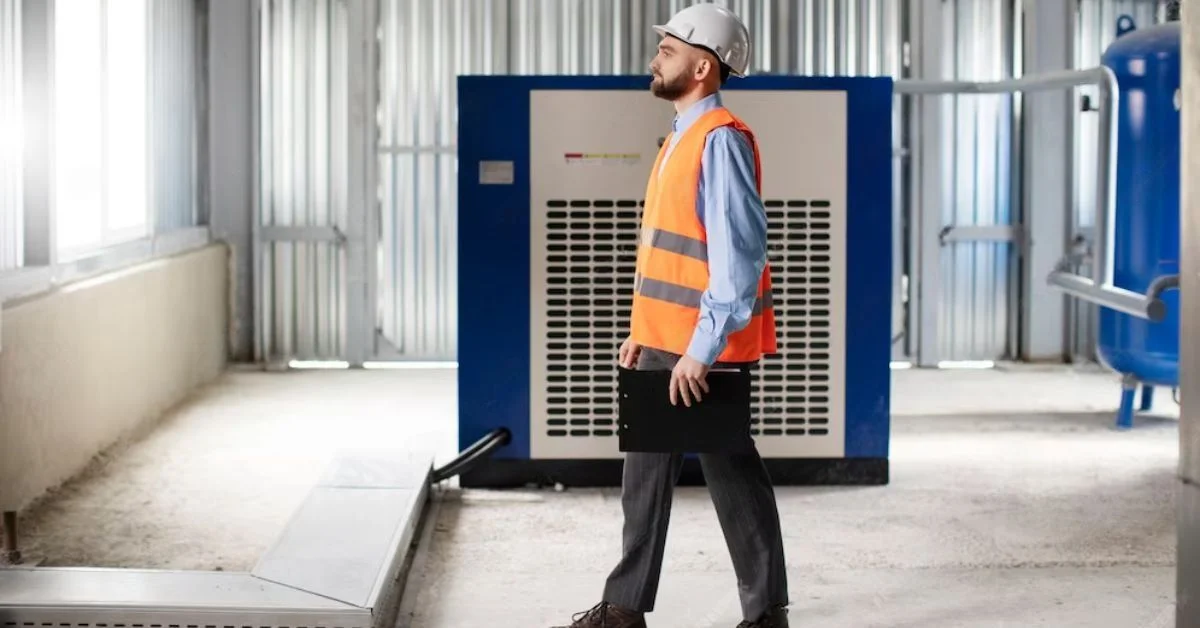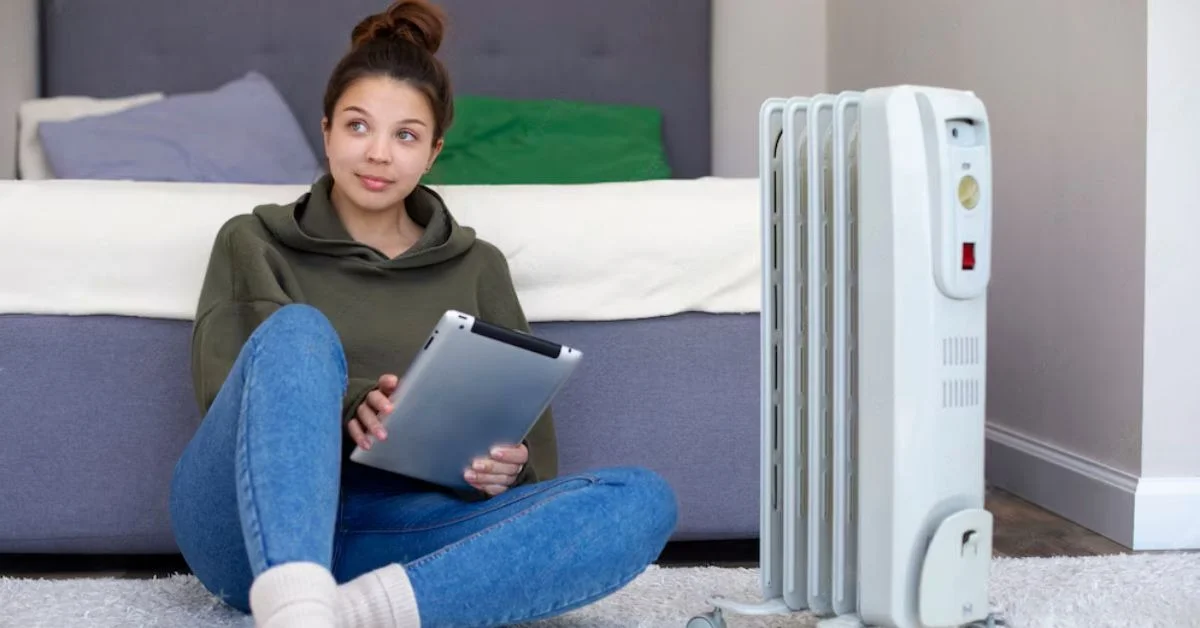GENERAL
Essential Tips for Choosing the Best Air Purifier for Allergies

Table of Contents
- Understanding Allergies and Indoor Air Quality of air purifier for allergies
- Types of Air Purifiers: Which One is Right for You?
- Key Features to Look for in an Air Purifier
- Tips for Keeping Your Air Purifier Running at Peak Performance
- Common Misconceptions About Air Purifiers
- Real-Life Stories: How Air Purifiers Have Made a Difference
- Conclusion
Living with allergies can be a daily challenge, especially when allergens invade your indoor space. Finding the best air purifier for allergies can significantly improve your quality of life. However, selecting the right one can be confusing with so many available products. Not all purifiers are created equal, so understanding their differences is essential.
This guide is designed to simplify the complex world of air purifiers. We will discuss different types of purifiers, essential features to consider, and maintenance tips. Our practical advice will help you select a purifier that meets your needs and keeps your home environment free from allergens.
Understanding Allergies and Indoor Air Quality
Allergies affect millions of people worldwide, and common triggers include pollen, dust mites, pet dander, and mold spores, which are often found in even the cleanest homes. These allergen respiratory issues lead to symptoms like sneezing, coughing, and asthma attacks. Therefore, maintaining good indoor air quality is crucial for managing allergies. By recognizing the specific symptoms you experience, you can make effective changes in your home environment, such as using air purification systems.
Types of Air Purifiers: Which One is Right for You?
Navigating the types of air purifiers available can be confusing. Here’s a comparative look:
- HEPA Filters: These are highly recommended for allergy sufferers due to their ability to capture 99.97% of particles as small as 0.3 microns. They are instrumental in filtering out pollen, dust, and other fine particles.
- Ionic Purifiers can reduce allergens by neutralizing airborne particles and releasing negative ions. However, they can sometimes create ozone, which may not be suitable for all users, especially those with respiratory issues.
- UV Purifiers: Primarily used to destroy bacteria and viruses through ultraviolet light, they are less effective against non-living allergens but can complement purifiers targeting microbes.
Choosing the right type depends on the pollutants in your home and your personal health needs and preferences.
Key Features to Look for in an Air Purifier
Selecting an air purifier involves evaluating various features to ensure efficiency and user-friendliness:
- HEPA Filters: A HEPA filter is essential for effective allergen removal and is the gold standard in air purification.
- Noise Levels: Low-decibel units are ideal for bedrooms or open spaces with distracting noise.
- Energy Efficiency: ENERGY STAR-rated appliances are recommended for minimizing power consumption without sacrificing performance.
- Purifier Size and Capacity: Calculate the recommended square footage coverage to ensure your purifier can effectively clean the air in your intended room.
Being mindful of these features will help you maximize the benefits of your purifier investment.
Tips for Keeping Your Air Purifier Running at Peak Performance
Regular maintenance of your air purifier ensures it operates at peak efficiency, extending its lifespan:
- Filter Monitoring: Examine filters monthly for dust and dirt accumulation. Replace filters based on usage and manufacturer’s guidelines to maintain adequate air cleaning.
- Exterior Care: Dust and wipe the purifier’s casing to prevent the build-up of particles that can obstruct airflow.
- Scheduled Servicing: Some air purifier models may require professional cleaning or servicing to address internal components, typically outlined in the user manual.
Adhering to these steps ensures optimal performance and keeps your air purifier functioning well over time.
Common Misconceptions About Air Purifiers
Air purifiers are often misunderstood, leading to unrealistic expectations. One frequent misconception is that all purifiers eliminate odors or that larger units provide better performance. In reality, the purifier’s effectiveness is closely tied to its technology and the specific size of its intended area. Furthermore, purifiers should complement other methods, such as ventilation and regular cleaning, to manage indoor air quality effectively.
Real-Life Stories: How Air Purifiers Have Made a Difference
Imagine the relief of a parent whose child no longer wakes up with debilitating allergies or the calm breathing of someone who has chronic asthma. These stories highlight the profound impact air purifiers can have. Many users report better sleep, reduced allergy symptoms, and an overall daily comfort and lifestyle enhancement. While these are individual experiences, they bring hope that an effective air purifier can bring physical and emotional relief.
Conclusion
In conclusion, choosing the right air purifier for allergies is vital for a healthier living environment. Understanding the types and key features and proper maintenance can significantly reduce allergens in your home and ease allergy symptoms. While no purifier fits everyone, selecting one that meets your needs can dramatically improve indoor air quality. Investing in an air purifier enhances your well-being and peace of mind. Take the time to research and compare options so you can breathe easier and live better.
GENERAL
Going Green: Eco-Friendly Alternatives to Traditional AC Units

If you are looking for eco-friendly options to cool your place, think about using solar-powered systems, geothermal heat pumps, or smart temperature control devices. These choices can help you save on energy bills and lessen your impact on the environment, all while keeping your home comfortable.
Are you interested in finding more ways to cool your space in an efficient and environmentally friendly manner?
Energy-Efficient Air Conditioners
If you want to save on your energy bills and still keep cool, think about getting energy-efficient air conditioners. These units use green tech to cool your place sustainably. By choosing energy-efficient air conditioners, you’re not just cutting down on energy use but also saving cash over time.
To ensure the best performance of these energy-saving units, consider hiring expert AC installation contractors in Phoenix. Their skill and knowledge guarantee that your new system is installed correctly, maximizing efficiency and helping you reap the benefits of your investment in a greener, more economical cooling solution.
These air conditioners are built to use less energy by employing cutting-edge technologies. They come with smart features like compressors that can change speed and thermostats you can program. This means they can adjust how they run based on how much cooling you need, helping you save a lot of energy.
Besides being good for the planet, energy-efficient air conditioners also work better and last longer. If you take good care of them, you won’t have to replace them as often. This cuts down on waste too. Switching to energy-efficient air conditioners means you’re helping the planet and staying cool at the same time.
Solar-Powered Cooling Systems
Look into using the sun’s power with solar-powered cooling systems for a green and sustainable way to make your space cool and comfortable. These systems use the sun’s energy to cool, providing solutions that don’t rely on the grid for those wanting to lessen their environmental impact. With solar panels, they turn sunlight into electricity that powers the cooling efficiently.
Adding solar-powered cooling systems to your house or office not only helps cut down on your energy bills but also helps make the environment cleaner. These systems are good for the planet because they release fewer greenhouse gases than regular air conditioners. Plus, they don’t need much maintenance, making them an easy and cost-saving option for cooling.
Choosing to use solar-powered cooling systems is part of living sustainably, letting you keep cool while also caring for the earth. Go for renewable energy and move towards cooling in a more eco-friendly way with solar power.
Geothermal Heat Pumps
Geothermal heat pumps are a great way to get heat from the earth in an efficient way. They use a source of energy that doesn’t run out to make your space warm or cool.
By using stable temperatures from below the Earth’s surface, these systems keep your space comfortable all the time and help you save on your bills.
Think about how good geothermal heat pumps can be for a cooling solution that saves money and is good for the planet.
Efficient Earth Heat Extraction
Tapping into the Earth’s natural warmth with geothermal heat pumps is a smart and green way to heat and cool your house. These systems take heat from the ground in winter to make your home warm and move heat into the ground in summer to cool it down. You can also use geothermal heat pumps to store heat when it’s warm outside and use it later when it gets cold.
Plus, they offer a cool feature of passive cooling. This means they pump a fluid through pipes under the ground. The Earth’s constant cool temperature helps to chill the fluid before it comes back into your house.
Choosing geothermal heat pumps helps you cut down on your carbon footprint while keeping your home comfortable in an efficient way.
Renewable Energy Source
Use the warmth from under the Earth smartly with geothermal energy and heat pumps for your house. These heat pumps work using the Earth’s surface’s steady temperature to keep your house warm or cool.
This is a good choice instead of regular AC units. Geothermal systems use the Earth’s stable temperature for heating and cooling your house all the time, not like wind or water power that depends on the weather.
If you choose this way of getting energy, you’ll make less pollution and use less energy in your house. Geothermal heat pumps are a good investment for your future. They’re good for the Earth and give you a sure way to heat and cool your house.
If you go for geothermal energy, your house will be more green and good for the environment.
Lower Operating Costs
Cut down your home’s running costs by choosing geothermal heat pumps. They’re great for both heating and cooling and can save you a lot of money. Geothermal systems are a smart choice for homeowners who want to spend less. Here are reasons why geothermal heat pumps are a good way to save:
- Save More in the Long Run: The first cost for setting them up is a bit high, yes, but geothermal systems make up for it by saving you a lot of money later on. They work very efficiently and don’t cost much to run.
- Very Efficient: Compared to usual heating and cooling systems, geothermal heat pumps use up to 50% less energy. This means you’ll use less energy and pay less for your bills.
- Fewer Repairs Needed: These systems don’t have many parts that move, so they don’t need much fixing or care. This means you save money on fixing and taking care of them.
- Government Help: Many governments give you money back or other benefits if you install geothermal systems. This makes choosing this green option even more worth it.
Evaporative Coolers
Evaporative coolers, which people also call swamp coolers, are a good choice for cooling your house in a way that doesn’t cost a lot and is friendly to the environment. These devices pull in warm air and pass it through pads soaked in water.
This process makes the water evaporate and cools the air, which then gets spread around your place. A big plus of these coolers is that they don’t use as much water as the usual air conditioning systems do. This makes them a better option for areas where saving water is important.
Also, these coolers are good at managing the humidity. Different from air conditioners that might make the air too dry, evaporative coolers add moisture to the air while they work.
This is especially good in places with dry air that can make you uncomfortable. By making the air more humid, evaporative coolers don’t just cool down the air, but they also make the inside of your home feel more comfortable for everyone.
Think about getting an evaporative cooler if you want effective cooling that uses less water and makes the air feel nicer too.
GENERAL
5 Instances You Should Avoid Using Your HVAC System

The heating, ventilation, and air conditioning system keeps your indoor air quality(IAQ) at its optimum, ensuring the room’s comfort. A poorly functioning HVAC system can mean smoke, dust, and other pollens can enter your home, increasing the risk of respiratory and skin conditions.
Apart from keeping you warm during the cold winter seasons, an HVAC system can improve your sleep quality and energy efficiency. However, there are times you just can’t use the HVAC system. They include but not limited to:
1. When It’s Malfunctioning or Broken
Many issues can arise if the HVAC system is not performing as it should. The air conditioning system pulls hot indoor air and introduces cool outdoor air. This air is purified through the duct systems to remove allergens such as mold spores, viruses, dust, or bacteria.
A broken or malfunctioning HVAC will not purify the air, making you and those living in the house, including pets, vulnerable to air pollution, resulting in diseases. Some of the common heath care problems caused by malfunctioning, broken, or poorly maintained HVAC systems include;
- Constant fatigue and illness
- Dry skin
- Breathing problems
- Wheezing
- Cough
- Fever
Also, people with pre-existing respiratory conditions like asthma may experience worse symptoms. If the air conditioning system is broken or malfunctioning, do not continue using it. Look for an HVAC expert and have them repair it.
2. During Natural Disasters
During natural disasters, most people often think only about uprooted roofs, trees, or windows. But your HVAC system may also be in trouble. Disasters like wildfire, lightning, earthquake, floods, tornados, or hurricanes can cause devastating mayhem.
During these uncertain periods, turning off your system to prevent water damage, gas leaks, or electrical hazards is advisable. Summer to fall are known as wildfire seasons, and the local authority may issue wildfire advisories.
Using your HVAC system during wildfires can be tricky, but you can learn how to use HVAC unit during wildfire advisory and maintain its performance ability.
3. When There Is A Carbon Monoxide Leak
Unfortunately, carbon monoxide is odorless, tasteless, and colorless, making it deadly and difficult to detect. Only a carbon monoxide detector can help detect this gas, and most homes are recommended to have one installed.
HVAC systems can malfunction, causing carbon monoxide and other gases to leak. Because the gas is almost undetectable, some of the signs of carbon monoxide poisoning include:
- Shortness of breath
- Dizziness
- Feeling weak
- Headaches
Longer exposure can lead to blurred vision, nausea, vomiting, or loss of consciousness. Keep an eye on cracked heat exchangers in gas furnaces, boilers, and furnaces with leaking seams, a combustion chamber with cracks, a pilot light that often goes off, and a bad component.
4. When Air Quality Is Compromised
Air conditioning systems can effectively eliminate outdoor pollutants by purifying outdoor air. However, not all systems can minimize the risks of deteriorated outdoor air.
When indoor air quality is poor due to pollutants like wildfire smoke, you are at a higher risk of illnesses. Most mechanical air conditioning units are manufactured with filtration systems, so ensure the filter is current.
An AC alone is not enough to remove all the pollutants that risk your comfort and health. Actually, if your filter is a HEPA filter known for its minimum efficiency reporting values (MERP) rating, you can trust that the air purification process is better.
5. During Servicing Or Maintenance
Regular maintenance is the best service you can give your air conditioning system. It allows the system to be checked for worn-out, broken, or damaged areas.
When the system is undergoing repair or servicing, it’s best to avoid using it to prevent accidents or interference with the process.
In Conclusion
The HVAC system is undoubtedly handy in most homes, especially since most people spend their time in buildings. However, there are times when you just can’t use the cooling system due to various factors, including natural disasters.
Always ask your technician or maintenance personnel when unsure of your current circumstances.
GENERAL
6 Causes Of AC Breakdown You Should Never Ignore

Air conditioning systems have become an essential part of people’s lives, providing comfort and relief during the sweltering heat of summer. However, like any mechanical system, AC units are vulnerable to wear and tear, which results in potential breakdowns that can disrupt our comfort and even result in costly repairs.
Understanding the causes of AC breakdowns is crucial to prevent minor problems from developing into significant problems.
Keep your cool by staying ahead of these breakdown causes, and remember, emergency AC repair in Avondale, AZ, is just a call away when things heat up.
Frozen evaporator coils
One of the more common yet serious issues that can result in an AC breakdown is the freezing of the evaporator coils. These coils play a vital role in absorbing heat from the air within your home. When these coils freeze, your AC system loses its ability to perform this essential function effectively.
This problem is often caused by reduced airflow caused by dirty air filters or insufficient refrigerant levels, leading to a significant drop in temperature around the coils. Warning signs of this issue may include:
- The presence of visible ice on the coils.
- A noticeable decline in the efficiency of your air conditioning system.
- The unit is blowing out warm air.
Regular maintenance checks are crucial in identifying this problem early on, which can help prevent more severe damage to your AC system in the long run.
Refrigerant leaks
Refrigerant leaks pose a significant problem that can result in AC breakdowns. Refrigerant is crucial for your air conditioner to extract heat from your home’s air. A leak reduces the cooling efficiency and can lead to compressor failure, requiring costly repairs.
Detecting and repairing a refrigerant leak promptly can prevent extensive damage to your AC system, ensuring it operates smoothly and efficiently. Neglecting such leaks compromises the system’s performance and may lead to a complete breakdown.
Faulty wiring
Faulty wiring is a critical issue that can lead to severe consequences for your AC unit, including breakdowns or potential fire hazards. Improper or old wiring compromises the air conditioning system’s efficiency and can cause it to overwork, leading to overheating and eventual failure.
Faulty wiring also poses a significant safety risk, with the potential for electrical shorts that could result in fires. Ensuring your AC’s wiring is correctly installed and maintained is essential for the safety of your home and the longevity of your air conditioning system.
Regular check-ups by a qualified technician can help point out and rectify any wiring issues before they lead to more significant problems.
Outdoor unit obstructions
Outdoor Unit Obstructions significantly impact the efficiency and functionality of your air conditioning system. When the outdoor component of your AC, often known as the condenser, is blocked by debris, leaves, or even outdoor furniture, it struggles to release heat from the system.
This hampers the cooling process and forces the AC to work harder, increasing wear on the components and potentially leading to overheating and breakdown. Keeping the area around your outdoor system clean and clear of obstructions is a simple yet effective way to prevent unnecessary strain on your AC, ensuring it runs smoothly and reducing the risk of breakdowns.
Thermostat problems
A malfunctioning thermostat fails to communicate correctly with the air conditioning system, leading to erratic cooling or heating. This miscommunication can cause the AC to cycle on and off more frequently than necessary, placing undue strain on the system and potentially leading to premature breakdowns.
Ensuring your thermostat is correctly calibrated and in good working order is crucial for your AC’s overall health and efficiency. It also prevents unnecessary wear and tear on its components.
Drainage issues
The cooling process generates significant condensation, which usually drains away from the unit. However, if the drainage path is blocked or the drain pan is full, water can back up, leading to mold growth, corrosion, and potential water damage to the system’s components.
This type of blockage not only decreases the AC’s efficiency but can also trigger an emergency shut-off or cause the evaporator coil to freeze, both of which can lead to significant system breakdowns. Regularly checking and clearing the AC unit’s drainage system ensures proper function and prevents these potentially costly issues.

 ENTERTAINMENT4 days ago
ENTERTAINMENT4 days agoExploring the Kristen Archives: A Treasure Trove of Erotica and More

 ENTERTAINMENT1 day ago
ENTERTAINMENT1 day agoKiss KH: The Streaming Platform Redefining Digital Engagement and Cultural Currents

 EDUCATION1 day ago
EDUCATION1 day agoLingrohub Platform: A Complete Student Access Guide

 LIFESTYLE4 months ago
LIFESTYLE4 months agoThe Disciplinary Wives Club: Spanking for Love, Not Punishment

 TECHNOLOGY1 day ago
TECHNOLOGY1 day agoCasibom: The Digital Alchemy Reshaping Systems, Society, and Self

 TECHNOLOGY4 months ago
TECHNOLOGY4 months agoBlog Arcy Art: Where Architecture Meets Art

 BUSINESS24 hours ago
BUSINESS24 hours agoDiversifying Your Portfolio: The Key to Successful Investing in Portland, Oregon

 TECHNOLOGY24 hours ago
TECHNOLOGY24 hours agoSecuring Your Online Presence: The Ultimate Guide to Buying an SSL Certificate












